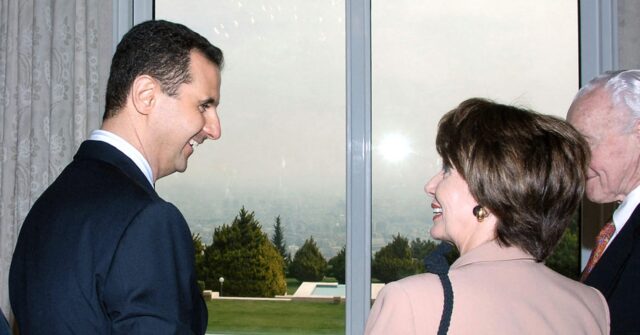The political landscape in the United States, particularly concerning foreign relations, often reveals contradictions within party lines. A significant point of contention arose when former Rep. Tulsi Gabbard publicly faced backlash from Democrats for a meeting she had with Syrian President Bashar al-Assad in 2017. Many Democrats, including prominent figures like former Speaker of the House Nancy Pelosi, have also met with Assad in past years. Pelosi’s visit in April 2007 marked her as the highest-ranking U.S. official to engage with Syrian leadership since 2003. The purpose of her meeting was to address strained U.S.-Syria relations, facilitate communication regarding peace efforts from Israeli Prime Minister Ehud Olmert, and discuss issues in Iraq and the region. Despite her intentions, the visit drew criticism from the U.S. administration at the time, highlighting the contentious nature of diplomacy with countries perceived as adversaries.
The historical context of U.S.-Syrian relations reveals a pattern wherein several American politicians from both parties sought engagement with Assad despite his regime’s notorious human rights violations. For instance, Senator John Kerry also met with Assad, even dining with him and his wife, an act that stirred discontent in the political arena following Kerry’s unsuccessful bid for the presidency. This pattern of interaction with Assad is illustrated by a 2012 exposé published by Breitbart News, which compiled images and instances of American politicians, predominantly Democrats with a few Republicans, who had engaged with the Syrian leader. These meetings were often motivated by an intent to counter the isolationist policies of the George W. Bush administration or to foster relations under the Obama administration’s broader outreach to the Arab and Muslim world.
Gabbard’s meeting with Assad has drawn particular scrutiny, amplified by her concerns about the treatment of Christians and other minorities amid Syria’s civil war. Critics, particularly from her own party, have alleged that her willingness to engage with Assad raises questions about her loyalty and judgment, particularly amid suggestions that she might compromise U.S. intelligence as the anticipated Director of National Intelligence under Donald Trump. Allegations have been made, without substantial evidence, branding Gabbard as a potential Russian spy, further complicating her political standing and raising eyebrows over her interactions with foreign leaders deemed hostile to U.S. interests.
The dichotomy seen in the reactions from Democrats regarding Gabbard’s visit versus their own leaders’ interactions with Assad underlines a larger narrative in American politics. The varying standards of accountability suggest a selective memory and moral justification where the aggressive posture of U.S. foreign policy is concerned. This inconsistency can undermine the credibility of party opposition and has led to internal conflicts within the Democratic Party, as answers to foreign policy questions increasingly diverge based on individual political motives rather than coherent party ideology. Such dynamics reveal ongoing struggles within the Democratic Party regarding foreign policy strategy and the broader implications for international relations.
Political discourse often highlights these contradictions, prompting discussions about the ethics and effectiveness of engagement versus isolation. As seen with the reactions toward Gabbard, such discussions can quickly devolve into accusations that detract from substantive debates. The implications of these confrontations extend beyond the individuals involved, touching on the broader implications for how the United States conducts its foreign policy, and whether it opts for diplomacy or hardline tactics in dealing with regimes that defy international norms. The challenge remains for U.S. policymakers to navigate these waters carefully, balancing domestic political pressures with the realities of international diplomacy.
In sum, the ongoing tension around Gabbard’s meeting with Assad juxtaposed with historical instances of similar engagements by prominent Democrats underscores the complexities and contradictions within U.S. foreign policy. As Congress and the public grapple with these issues, it points to a critical inquiry: how should American leaders approach relations with controversial figures on the global stage while remaining accountable to the principles of human rights and national security? With such important questions at play, the discourse around Gabbard’s actions reflects a larger struggle that encompasses the past, present, and future of American foreign policy decision-making.

